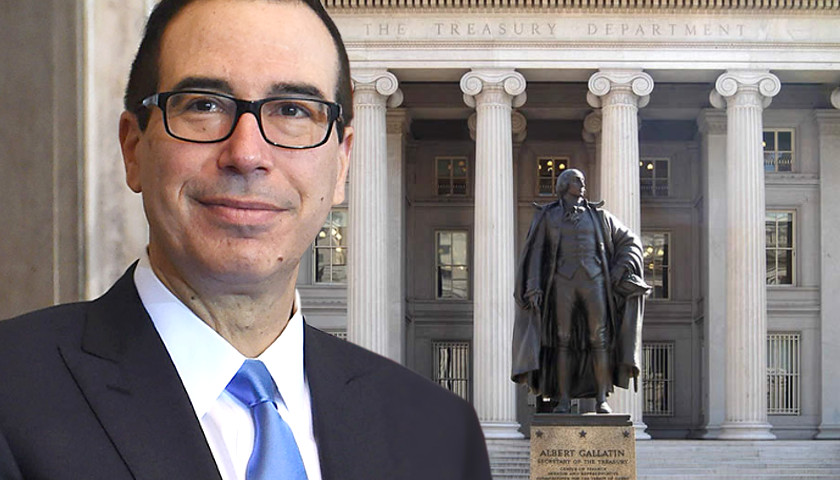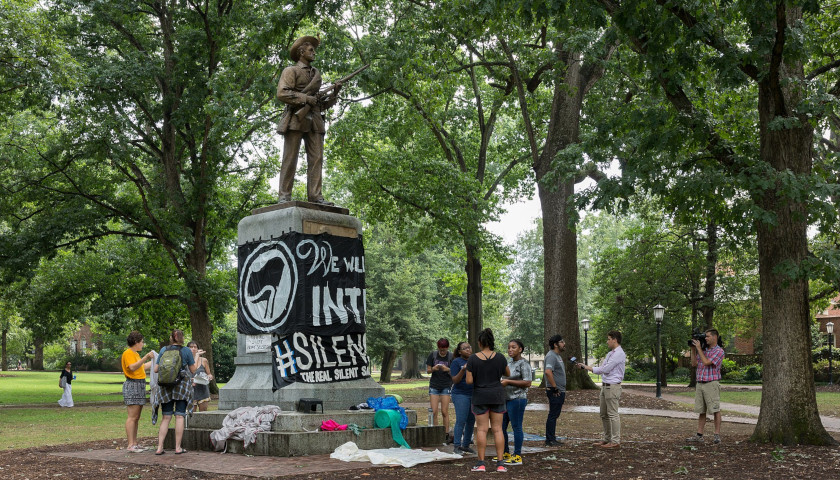by Robert Romano In 2016, the Democratic Party’s nominee for president, Hillary Clinton, had an FBI investigation because she was storing classified information on her private server for the convenience of reading her classified emails on a smartphone. Details of the investigation came out throughout the campaign, resulting in former FBI Director James Comey’s July 2016 determination not to pursue charges and then an Oct. 2016 surprise that he was reopening the matter. Determined to ensure that her opponent, then candidate Donald Trump, would not be without an investigation of his own, the Clinton campaign and the Democratic National Committee sought to frame him as a Russian agent who had helped Moscow hack the DNC and put the emails onto Wikileaks. It resulted in a top secret FBI investigation and FISA warrants that all carried over after the 2016 election when Trump won and into his administration, ultimately resulting in Special Counsel Robert Mueller being appointed to investigate—severely hampering the Trump presidency. Mueller found there was no Trump campaign conspiracy with Russia to hack the DNC and give the emails to Wikileaks. According to Mueller’s final report to the Attorney General, “the evidence was not sufficient to charge that any member of the Trump Campaign…
Read the full storyTag: blackmail
Southeastern Legal Foundation’s Director of Litigation Braden Boucek Explains Nashville’s Sidewalk Extortion
Tuesday morning on The Tennessee Star Report, host Leahy welcomed The Southeastern Legal Foundation’s Braden Boucek to talk about Metro Nashville’s sidewalk extortion.
Read the full storyHacker Accessed D.C. Donor Information from Virginia Hospital Center For Months
An unauthorized party accessed donor and fundraiser information for months from Virginia Hospital Center (VHC), who has served the Washington, D.C. area for 75 years. The company, Blackbaud, also reported many of its other clients’ donor and fundraising data jeopardized by the hackers.
VHC stored donors’ personal information. This included names, addresses, phone numbers, email addresses – even birth dates and the last four digits of credit card numbers. Hackers had access to these records for approximately three months, from February to May. However, the last traces of hacking didn’t cease until early June.
Read the full storyTrump Administration Uses Obscure Treasury Department Agency to Tighten Foreign Investments in U.S. Tech and Data by China
by Masood Farivar For decades, it was virtually unknown outside a small circle of investors, corporate lawyers and government officials. But in recent years, the small interagency body known as the Committee for Investment in the United States has grown in prominence, propelled by a U.S. desire to use it as an instrument of national security and foreign policy. This week, the panel made headlines after it reportedly directed Chinese gaming company Beijing Kunlun Tech to divest itself of Grindr, a popular gay dating app, because of concern the user data it collects could be used to blackmail military and intelligence personnel. Operating out of the Treasury Department, the nine-member CFIUS (pronounced Cy-fius) reviews foreign investments in U.S. businesses to determine whether they pose a national security threat. Notification was voluntary Until last year, notifying the panel about such investments was voluntary, something Kunlun and California-based Grindr took advantage of when they closed a deal in 2016. But given growing U.S. concern about Chinese companies with ties to Beijing buying businesses in sensitive U.S. industries, the committee’s rare intervention to undo the deal was hardly a surprise, said Harry Broadman, a former CFIUS member. “I think anyone who was surprised…
Read the full storyCommentary: Blackmail Added to Mob Rule on Campus Activists’ Resumes
by Jay Schalin The proper term for the actions of the University of North Carolina at Chapel Hill graduate student assistants and instructors threatening to withhold grades unless Silent Sam—a statue of a Confederate soldier who was pulled off his pedestal by a mob of activists in August—is removed from campus is not “strike,” as the activists claim. It is “blackmail.” Blackmail is when one individual or group holds information over another’s head to force them to do their bidding. Granted, this one has a slight twist; usually, blackmail consists of somebody having damaging information that will humiliate or damage their victim unless they submit. This time, the blackmailers—and only the blackmailers—have information that is the administration’s and students’ right to know. They have declared that the students and administration will not receive the grades unless they do what the graduate students want. According to a Chronicle of Higher Education article, 79 teaching assistants and instructors have pledged to withhold more than 2,000 final grades. The activists’ demands, along with the removal of the statue, include: “Changes to a plan for increased campus security” “Increased wages for graduate and campus workers, the majority of whom make less than a…
Read the full story




